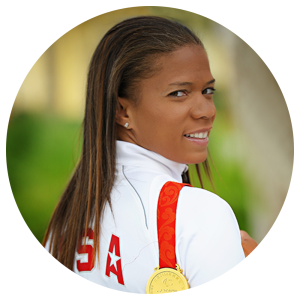
April Holmes achieved outstanding success as a sprinter and long jumper, rebounding from losing her left leg in a 2001 train accident to compete in four Paralympics, winning three medals, and breaking over a dozen Paralympic world records along the way.
Now an author, motivational speaker, and U.S. Center for SafeSport board member, April shares her experiences in sport, and her views on safer sport.
